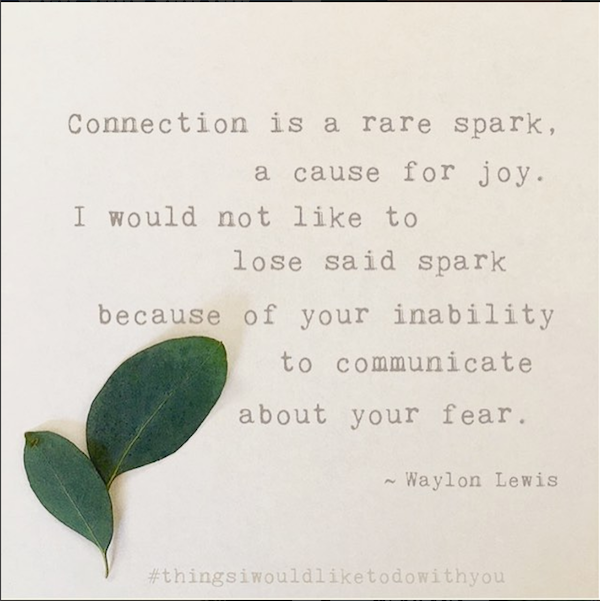There’s a girl I’m in kinda love with.
We like to joke, a lot.
A few times, however, she’ll be joking, I’ll be joking, and…I’ll say something that hurts her feelings.
She’s sensitive. So am I. That’s part of why I kinda love her—because of her big sweet red raw heart.
And she’s an open communicator. So am I. So we can mess up, I can mess up, she can mess up…and we will talk about it instead of bottling it up or trying to scheme our way around the “obstacle.”
The other day (okay, last night) we were joking for hours. Somehow (I think she was looking at herself on Facetime wink wink) the subject of her possibly cutting her long hair came up. Would you still like me if I cut my hair? Something like that.
I joked, no, I’d break up with you instantly, it’d be over. But my humor is dry and I sound serious. I just assumed…
Yup, uh-oh.
I do love her long, beautiful hair. I do. I probably prefer long hair, generally.
But hell no would I actually break up with someone I cared about over a haircut.
We talked (or rather texted) it out after some space. She was genuinely hurt, feeling like she didn’t know why I was dating her after all, if I was all about appearance. I was hurt that, at this point, she could possibly think that I only cared about her appearance.
Relationships, meet miscommunication.
But, today, I thought about it some more. What if she got a huge black tattoo that covered her thigh and other parts, as a girlfriend of a best friend of mine has, as well as another dear friend of mine. What if I got a face tattoo?
Does our partner have any “right” over our choices?
Did this just become a Sex & the City episode?
What if, at the age of 50, our partner decides to up and move to Paris to pursue his or her dreams of teaching dance? What if this happened at the age of 35, or 45, right after having children?
So that brings us to a few existential truths.
- Everything changes. You can’t count on anything, even in a committed relationship. Impermanence is a fundamental Buddhist truth. But my parents’ Buddhist teacher loved to encourage committed relationships. Why?
- We can trust our fundamental natures. Our shared values. That’s what we’re committing to, not to a right to be able to lock our partner into a haircut or to prevent them from getting a facial tattoo or breast or butt implants or moving off to Paris and leaving our children behind, or even a sudden impulse toward polyamory—no matter how extreme those examples are. We don’t have a right to dictate their choices. We do have a right to leave the commitment. And, we have a right to…
- Communicate—before, during and after said commitment—about how that might affect us or our children or mortgage or marriage. Marry or commit to a good, open communicator. ‘Cause the honeymoon kinda love is easy. Commitment is not.
From my book, Things I would like to do with You:
I would like to hear from you when you are confused.
Love can survive fear if acknowledged.
Love can survive fear only if acknowledged.
Things are not easy, always. A love affair is not imagination. It is the vicissitudes of daily life. It is two lifestreams intermingling.
I would like to hear you give voice in the hard times—then I can know this is a river of true love, and not merely a shallow standing pool, a game.
Relationships—love—is not fantasy, it is bricks and mortar. It is earth. But it is fantasy, too. It is heaven: dreams and hormones and the pleasure in biology and sudden laughter.
It is the rub between the two that creates sparks: earth, heaven.
It is communication that is water that cools those sparks, and gets us through the fear of loss, the difficult times, the simple arguments over dishes or the serious arguments over ethics.

 Share on bsky
Share on bsky






Read 12 comments and reply